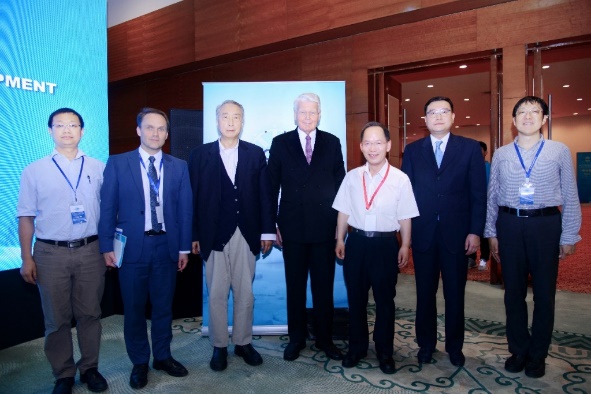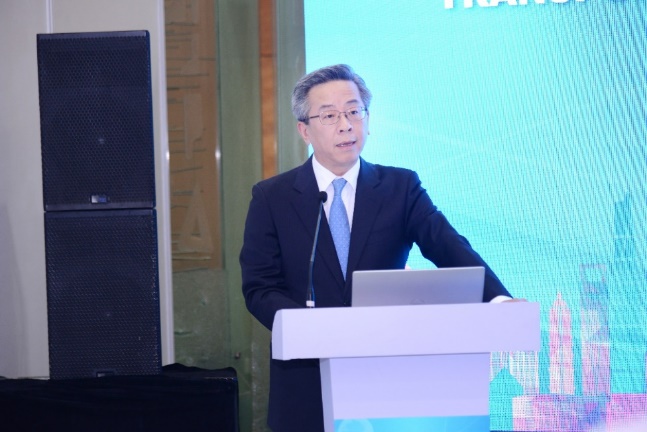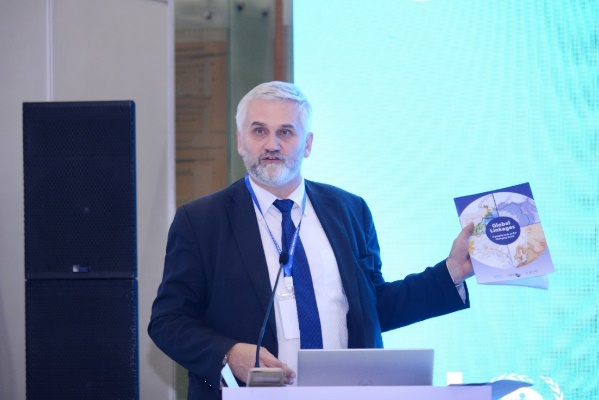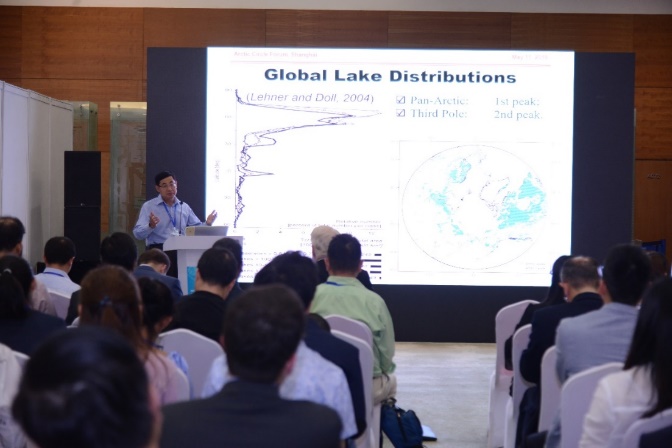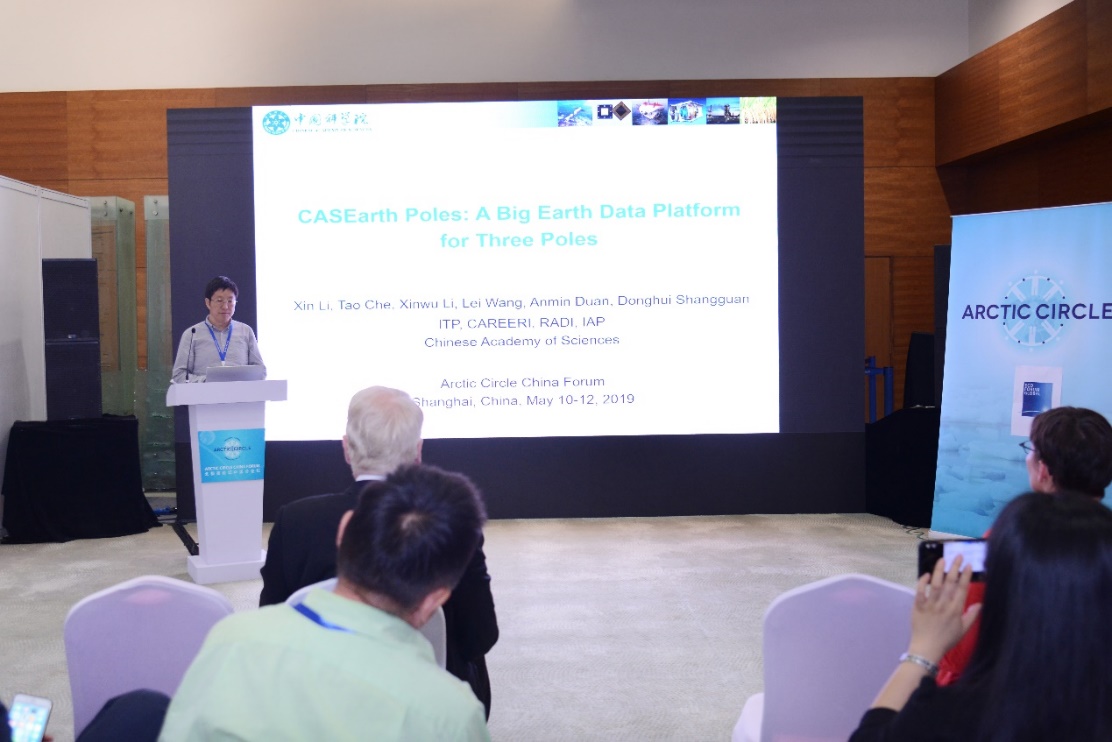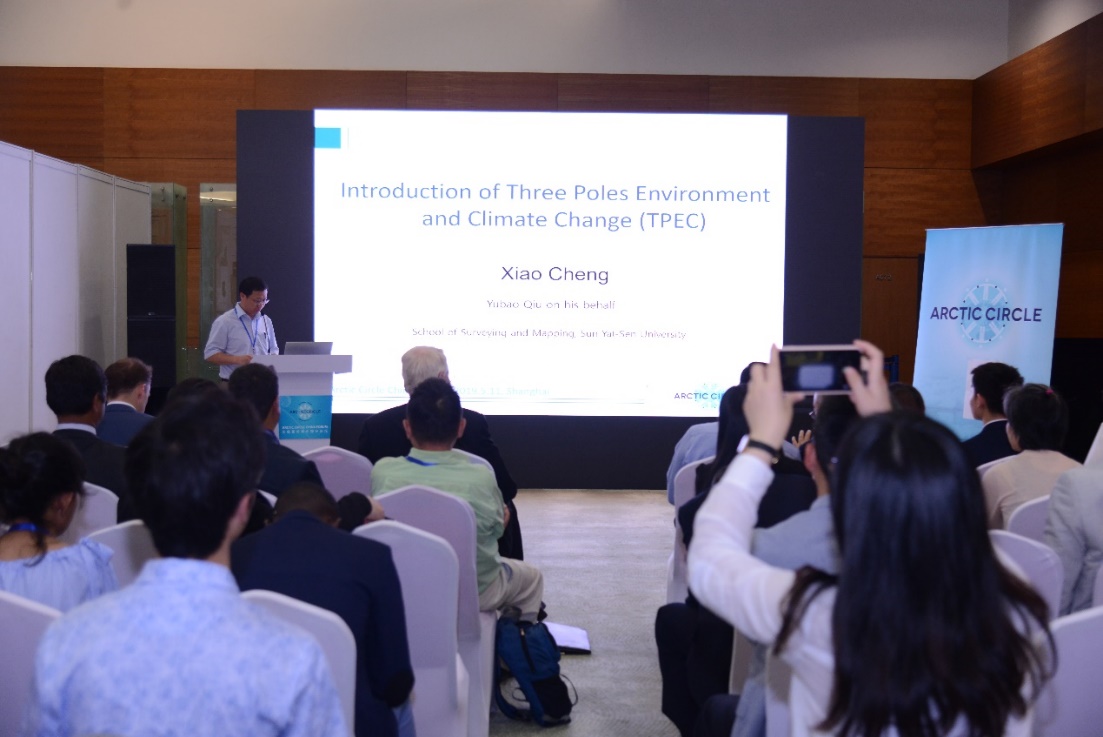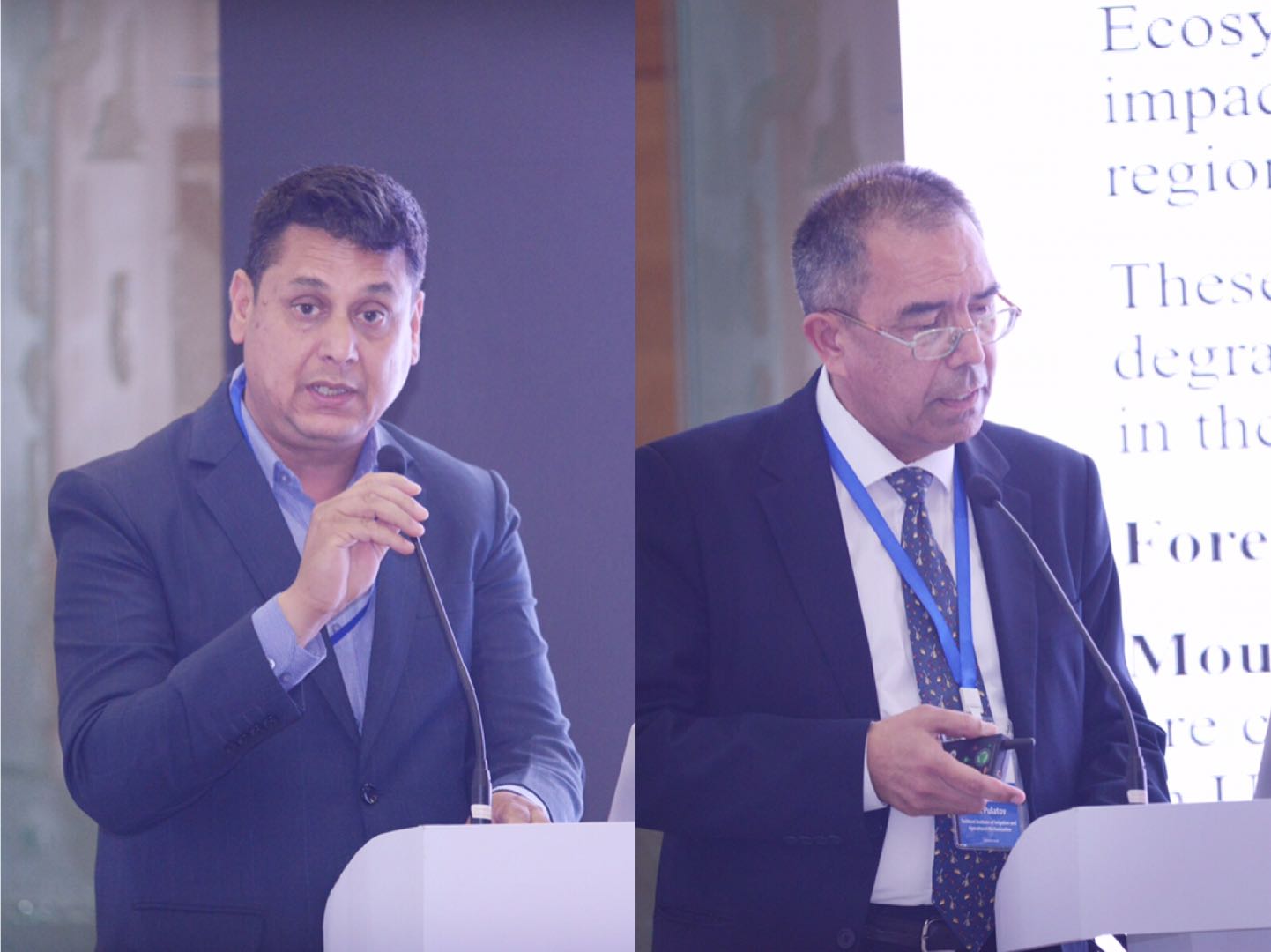| News |
| Latest news | |
| Int’l Cooperation activities | |
| Events & Announcement | |
| Recent Activities |
| Location: Home>News>Recent Activities |
| Three Poles, One Future |
During the Arctic Circle China Forum held in Shanghai, May 10-11, 2019, policy-makers and scientists agreed, among other things, that the Three Poles, namely the Arctic, the Third Pole and the Antarctica are all together a fundamental part of the earth system which has and will continue to change the course of human destiny. This message came loud and clear from speakers of the session “Environment and Climate Change at the Three Poles” convened by Prof. YAO Tandong, Chair of Third Pole Environment (TPE) and Mr. Dagfinnur Sveinbjornsson, CEO of Arctic Circle. According to H.E. ólafur Ragnar Grímsson, Chairman of Arctic Circle and former President of Iceland, this session “proves in a scientific way the fascinating advantage for the research community of bringing this dialogue together”.
Group photo On the session, H. E. LU Yongzheng, Vice Governor of Guizhou, a province in the southwestern China neighboring the Tibetan Plateau, underlined the ecological buffer capacity of the Third Pole and shared the success stories of Guizhou on ecological preservation.
H. E. LU Yongzheng, Vice Governor of Guizhoud Jan Duisk, Principal Adviser of Strategic Engagement for the Arctic and Antarctica, United Nations Environment Programme (UNEP), while offering a graphic look at the changing Arctic and its global linkages, highlighted that challenges in the Arctic cannot be managed in isolation and called for a holistic, ecosystem-based approach to promote sustainable future in the Arctic and beyond.
Jan Duisk, Principal Adviser of Strategic Engagement for the Arctic and Antarctica, United Nations Environment Programme (UNEP) Prof. Yongwei Sheng from University of California, Los Angeles, United States, compared lake distribution in the Arctic and the Third Pole as the two are the most and second most lake-populated areas globally. According to Prof. Sheng, similarity and contrasts found between the Arctic and the Third Pole can produce insights into how lakes are distributed as well as how they are changing in response to the warming.
Prof. Yongwei Sheng from University of California, Los Angeles, United States Prof. LI Xin from the Institute of Tibetan Plateau Research, Chinese Academy of Sciences (ITPCAS) introduced the design and infrastructure of CASEarth Poles, a big earth data platform which will allow for data integration across the Three Poles for global scientific advancement.
Prof. LI Xin from the Institute of Tibetan Plateau Research, Chinese Academy of Sciences (ITPCAS) Profs. CHENG Xiao from Sun Yat-Sen University and QIU Yubao from Aerospace Information Research Institute, Chinese Academy of Science (AIR-CAS) jointly introduced a mega-science program “Three Poles Environment and Climate Change (TPEC)”, which aims to bring together the science dialogue of the Arctic, the Third Pole and the Antarctica to better understand global environment and climate. They welcomed scientists across the world to contribute to the structuring of the potential program.
QIU Yubao from Aerospace Information Research Institute, Chinese Academy of Science (AIR-CAS) Scientists from Nepal and Uzbekistan also shared their concerns over climate impact on local well-being.
Scientists from Nepal and Uzbekistan |
